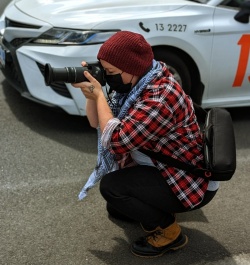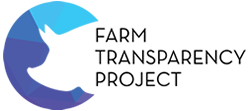The concept of an industrial complex is one with which most politically minded people are familiar; it is the totality of interactions between the state, corporations and institutions, which encompasses the actions, responses and social manipulations undertaken in pursuit of expanding the free market economy. Roles within the industrial complex are clearly defined, with government expected to create ideal market conditions but to refrain from intervening beyond that function.
In 1989 cultural anthropologist Barbara Noske defined the concept of the animal industrial complex, describing the relationships and networks through which government creates the market environment necessary to support the ever expanding animal agricultural sector, including the creation of demand when consumer markets shift:
Farming systems are not developed as an answer to public demand but predominantly as a result of expensive research, aimed at cost reduction, carried out by Agricultural scientists and changed by big business of government.
Australian State and Federal Governments spend billions of dollars every year supporting private businesses as well as industry lobby groups in order to expand operations and productivity. Lobby groups such as the Meat and Livestock Association (MLA) and Dairy Australia receive millions of dollars in Commonwealth contributions matched to levies paid by producers; these financial contributions (paid for by the taxpayer) and the projects they fund are listed in annual reports accessible online. The projects include school programs that grant industry access to the public education system (such as Dairy Australia's Picasso Cow scheme), as well as massive advertising campaigns, such as the MLA's “Australia Day” adverts, which also highlights the connections between the animal industrial complex and the media industrial complex.
Another mechanism used by government to support market expansion and stability are the actions taken on behalf of industry against growing movements of public dissent, as seen in Australia following the Dominion Anniversary Actions of 2018; State and Federal Governments acted swiftly to amend or introduce laws to protect animal exploitation industries, to the detriment of the democratic process. In lutruwita/Tasmania, the state Liberal Party introduced a raft of draconian amendments to the Workplaces (Protection from Protestors) Act 2014, which undermined due process and will result in hefty penalties against protestors targeting business or industry in the state, with unfairly punitive measures to be enforced in addition to already existing trespass laws.
And as corporations expand their productivity, exploiting and slaughtering increasing numbers of animals, they look outwards to find new markets and new resources, an expansion that is actively facilitated by government. As Noske stated in 1989:
The food companies are scouring the world in search of cheap sources of protein to fatten livestock. More and more agricultural wealth is geared to the feeding of production animals in the West, as more money can be made from this than from feeding hungry Third World children.
In the 30 years since Noske wrote those words the situation has only become more dire; the Global North continues to create new schemes to exploit the Global South in pursuit of resources for industry, as demonstrated by the Australian Government joining forces with Wellard Live Export corporation to push into Sri Lanka with the ill-fated dairy cow export program. Indeed, in 2018, 98% of soybean meal imported into Australia was sourced from Argentina, of which the vast majority was fed to farmed animals.
So as we can see, the animal industrial complex is comprised of the demonstrable connections between government, the law, public institutions such as research centres (including the CSIRO and universities) and the school system, corporate lobby groups, as well as media and advertising, in pursuit of manipulating or creating market conditions conducive to supporting a number of wealthy and powerful corporations. As the animal industrial complex becomes more entrenched so too are our democratic freedoms eroded, through the undermining of media integrity, the restrictions of protest rights, and the alteration of the very law itelf. As our democratic rights are further diminished, our acts of resistance must alter, adapt or even escalate accordingly by necessity:
As the world spirals ever deeper into disaster, with all things becoming more tightly knit into the tentacle of global capitalism, there is an urgent need for new conceptual and political maps and compasses to help steer humanity into a viable more of existence.
Activist groups have had to adapt the tactics and strategies used to resist the creeping power of the animal industrial complex, with farm transparency maps providing a new and confronting way to begin deconstructing the secretive operations undertaken within facilities across Australia, through the compilation of publicly available information from businesses into one convenient resource. By combining the locations of facilities with information and, where available, images and video footage from beyond the walls and gates that are constructed to obscure the public gaze, farm transparency maps have the potential to not only encourage the public towards embracing a more ethical lifestyle, but also to challenge the very power balance of the animal industrial complex itself. It is for this reason that the response from government officials upon the release of the Farm Transparency Project map in 2019 was so fierce and vitriolic; the state has to protect corporate interests at all costs. Yet despite ongoing threats of legal action, the map still stands, testament to the power of the truth.
The animal industrial complex is so pervasive that we often do not see how it functions to influence and control our lives, and yet it represents a significant threat to us all, human and non-human alike, through colonialist expansion, industrial destruction of the natural world, and the slaughter of trillions of sentient beings every year. In an age of increasing public surveillance and operational secrecy, we must embrace new tools and tactics such as these maps as a means to force transparency on industries and systems where there is none.
Resources:
Barbara Noske. Beyond Boundaries: Humans and Animals (1989)
Steven Best. "Pathologies of Power and the Rise of the Global Industrial Complex." in The Global Industrial Complex: systems of domination (2011)
David Harvey. A Brief History of Neoliberalism (2005)
OEC, “Where does Australia import Soybean Meal from?” (2018).



